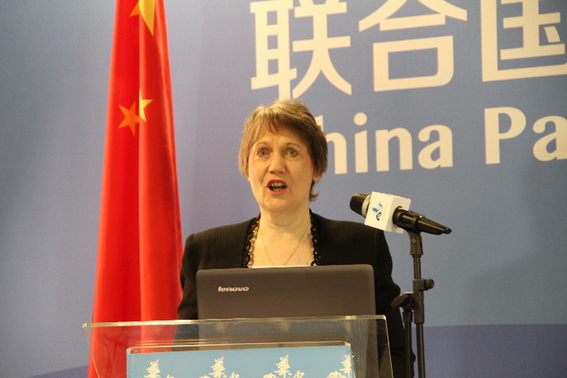UNDP applauds China's renewable energy efforts
- By Liu Yunyun in Warsaw, Poland
 0 Comment(s)
0 Comment(s) Print
Print E-mail China.org.cn, November 20, 2013
E-mail China.org.cn, November 20, 2013
At the High-Level Seminar on Addressing Climate Change in South-South Cooperation held on November 19 in Warsaw of Poland, Helen Clark, administrator of the United Nation Development and Programme, said: "There is no 'one size fits all' blueprint for making the transition to low-carbon and climate resilient development. But, without doubt, South-South cooperation is helping countries to shape their own, nationally appropriate paths to sustainable and inclusive development."
|
|
|
Helen Clark, administrator of the United Nation Development and Programme [By Liu Yunyun/China.org.cn] |
Clark said the South has emerged as a significant producer of low-carbon technologies and innovation. In 2012, China's renewable energy sector employed more than 1.7 million people. These were new jobs which had emerged over the past decade or so. China is establishing national policies to incentivize green growth, setting rigorous targets for energy efficiency and energy conservation, and making significant and growing investments in renewable energy.
Throughout China's agricultural sectors, erosion control, agro-forestry and other innovations are enabling productivity increases, ecosystem restoration and the building of greater resilience to the threat of floods and droughts. In addition, China is willing to share its experiences with the rest of the developing nations.
According to Xie Zhenhua, head of the China delegation to the 19th UN climate conference in Warsaw, to date, more than 700 government officials from 42 developing countries have received training on issues related to renewable energy, climate change and forestry; there are plans to train another 3,000 over the next two years.







Go to Forum >>0 Comment(s)